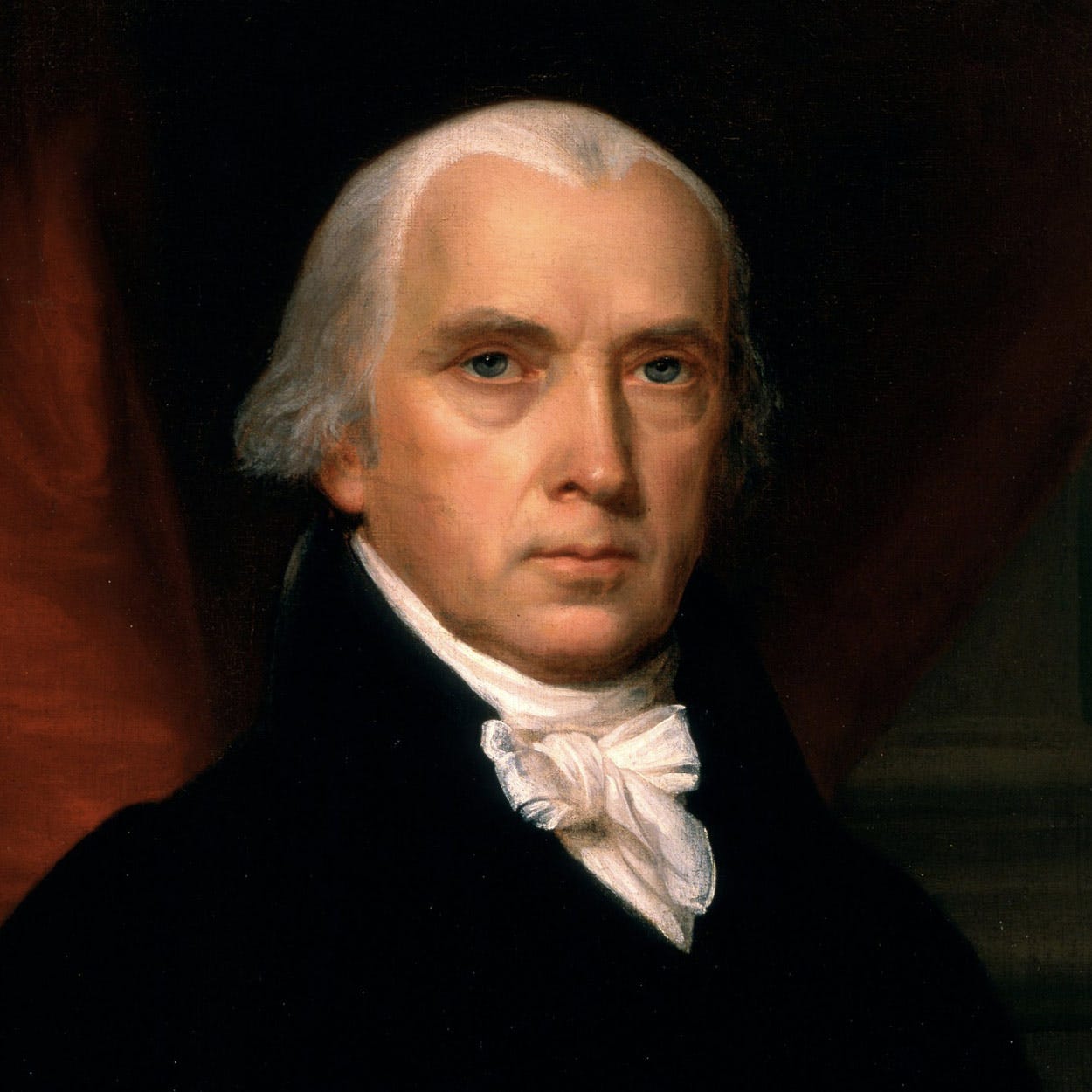“If men were angels, no government would be necessary,” remarked James Madison. But they weren’t, so he created one—with the help of the other delegates to the Constitutional Convention.
Madison’s observation bears remembering. The principle applies in realms beyond politics. If people were all honest, I wouldn’t lock my door. But they aren’t, so I bolt up. If life were fair, bad things wouldn’t happen to good people. But it’s not, and they do.
Madison’s principle continues to have relevance in politics and law. We wish for voters to be virtuous and elected officials selfless and wise, but we make allowance for the fact that they’re not. In the field of operations research, which devises optimal strategies for decision-making, there is a concept called “minimax,” referring to strategies that minimize the maximum loss that might be suffered by following a particular path. In investing, the same idea is called hedging downside risk. In Madisonian politics, it means limiting the damage careless voters and self-serving officials can do. The system Madison and his colleagues devised, based on three branches of the federal government each checking and balancing the others, was the result. It has worked pretty well, except for that big glitch in the early 1860s called the Civil War.
Yet the quest for angels persists, especially among progressives. Progressives want to make not just better laws but better people. Education has long been their favored tactic: educate people to the error of their beliefs, and they will adopt more enlightened ones.
It’s a noble idea, but it rarely works at scale. And it often backfires. Northern abolitionists, led in the 1830s by the strident William Lloyd Garrison, berated Southerners for their sinfulness in keeping slaves; Southerners, observing that the North had tolerated slavery until recently and still profited from the cotton trade, responded by declaring that slavery wasn’t simply not sinful but was a more enlightened form of labor mobilization than the “wage slavery” practiced in the North. The resentment festered, resulting in secession and war.
Prohibitionists for decades harped on the depravity of indulgence in drink; finally they imposed their morality on the country as a whole. Millions of the unpersuaded tippled illegally, corroding the legal system and entrenching organized crime in big cities.
During the last decade, progressives have persuaded or shamed elected officials across the South into removing statues erected to honor the generation that fought for Southern independence in the Civil War. Possibly the exercise changed the minds of some white folks who had grown up thinking their forebears were gallant, but many grew resentful at this dissing of their granddaddies. And they voted to make Donald Trump president, which was not the outcome the progressives desired.
As a rule, people don’t change their beliefs by being insulted or demeaned. They don’t become angels by being yelled at. Meanwhile, under the system Madison et al. bequeathed to us, they take part in government.
How shall the non-angels be accommodated? Put bluntly, what should we do with the racists, misogynists, misanthropists, homophobes, heterophobes, transphobes, cisphobes, xenophobes and all the others -ists and -phobes among us? That is, what shall we do with people who disagree with us?
First, acknowledge that under our system, everyone gets an opinion, and everyone gets a vote. We don’t impose moral tests at the ballot box, and we shouldn’t try. Ronald Reagan, informed that his campaign for California governor had been endorsed by the radical-right John Birch Society, was asked if he disavowed the support; replying that he did not, he noted, “They endorsed me; I didn’t endorse them.” For Richard Nixon to signal to white Southerners that he welcomed their votes didn’t make him a racist; it did make him president.
Second, don’t try to write your morality into law. The answer to historically racist laws isn’t anti-racist laws, where anti-racist implies a deliberate preference for the previously disadvantaged. The error of racist laws was not that they favored white people, but that they favored people of any race over any other. John Roberts was right when he said, “The way to stop discrimination on the basis of race is to stop discriminating on the basis of race.”
Third, embrace the progressive principle of education, but do so modestly. If you think others are misguided, offer guidance, but do so respectfully. They have reasons for believing what they believe; their life experience is probably different from yours. And they might have something to teach you. None of us are angels, but all of us have promise.




Another thought-provoking post, Bill. I shared it on social media, and here's a comment from a friend: It’s true that taking down statues mobilized white southerners for an election or two but now that they’re down the battle is won. They’re not going back up. I’d say in the long term most of the “backfires” were long term successes. The civil war was won, prohibition was repealed by a much more progressive administration and Biden is president now. It’s true progressivism usually creates a backfire but then there’s a much larger counter-backfire where the progressive agenda is really met
James Madison was no angel either so he would know.